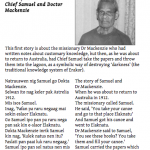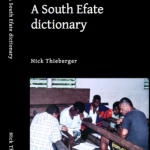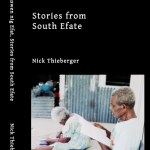Peter Austin’s blog post deals with online endangered language archive searchability. As one of the targets of his latest post, PARADISEC apparently does not provide him with the results he wants in searching a catalog. Searching for ‘Educational material’ in a catalog makes lots of assumptions about the way that catalog has been constructed, one of which must be that the term is provided by the catalog or that the typical depositor would use the term in their freeform description of the item. Strangely, the answer he offers is not to provide the infrastructure on which such searches may succeed in future, but to advocate a folksonomy in which such searches will always be sure to fail.
The post is an advertisement for what is undoubtedly a very nice interface to a set of material held by ELAR, but we should also bear in mind the large amount of funding that ELAR/ELDP have had, so we would hope for at least a nice looking webpage after eight years now. It is also interesting that ELAR holds only 70 collections after ELDP has funded 216 projects, what has happened to the rest of the material, or am I being too commodifying to think of such a thing?
The comments on the post raise OLAC – a great service that provides information for the broader community (including linguists, but especially speakers who can access it via google), harvesting information from archives around the world every 8 hours to update its language documentation index. OLAC provides a system for digital archives to maximise the searchability of their catalogs. There are 45 digital archives who take advantage of this free service. That represents almost all language archives in the world but to date ELAR has unfortunately chosen not to be part of that community.
 Follow
Follow


